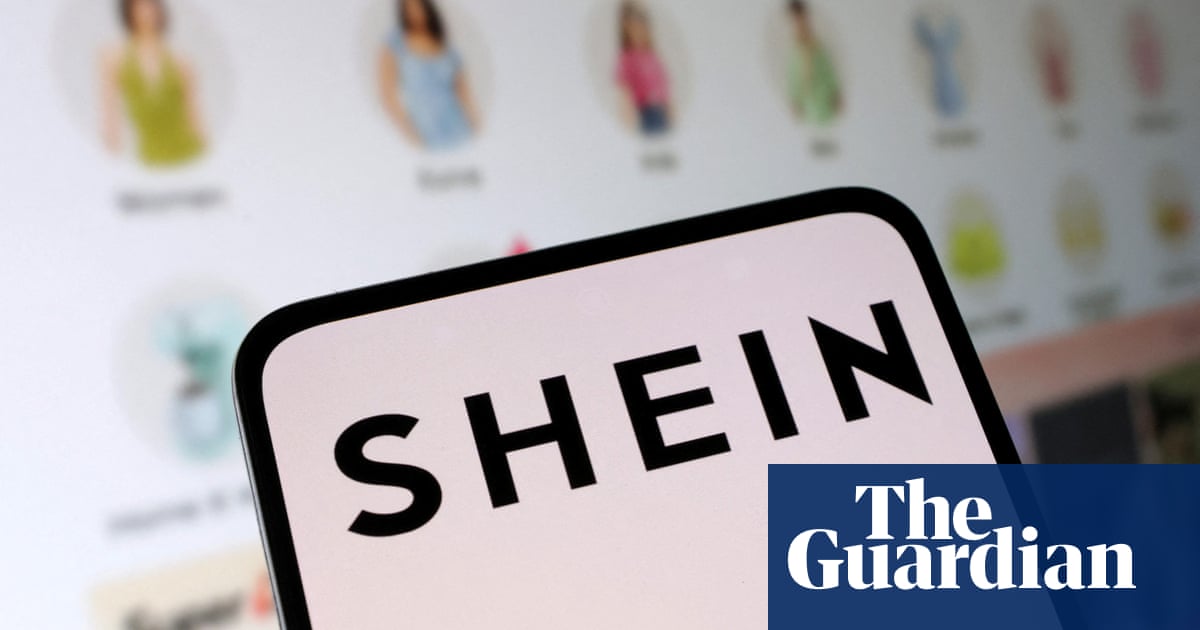The Labour party has indicated its support for Shein’s potential London listing, as the Chinese online fashion company prepares to push the button on the UK’s biggest ever stock market flotation.
The £52bn retailer is reportedly close to confidentially filing a prospectus for the listing on the London Stock Exchange to the Financial Conduct Authority as early as this week.
Labour confirmed a report that its MPs had met the retailer, among “a range of companies including Shein that are looking to invest or list in Britain”.
A spokesperson for the party said: “Raising investment, productivity and growth is one of Labour’s missions for government.”
However, the listing could prove politically divisive. Shein’s decision to opt for London comes after an initial effort to float in New York was derailed when politicians and regulators raised concerns about tensions between Beijing and Washington.
Senior politicians, including three parliamentary committee chairs, have questioned efforts to woo Shein, raising concerns about labour conditions in its supply chains.
Labour said it expected “the highest regulatory standards and business practices” from businesses operating in the UK. “We believe the best way to ensure this is to have more companies operating from and regulated by UK law,” the spokesperson said.
Jonathan Reynolds, the shadow business secretary, Sarah Jones, the shadow minister for industry, and Chris Bryant, the shadow minister for creative industries, recently met Donald Tang, Shein’s executive chair to discuss listing, the Times reported.
The chancellor, Jeremy Hunt, also met Tang earlier this year to try to persuade Shein to list in the UK rather than New York.
The company, which was launched in Nanjing, China, in 2012, has rapidly become one of the world’s largest fashion retailers because of its low prices and high-volume sales.
It is headquartered in Singapore and, while most of its suppliers are based in China, it does not sell products to the country.
The company posted more than $2bn of profits in 2023, nearly double the $1.1bn in 2021. If listed in the UK it is understood it could be valued at £50bn.
The expected filing of a prospectus does not guarantee the company will list in the UK but people close to the process told Sky News – which first reported the impending filing – it represented a significant moment that meant a City float for Shein was very likely.
Shein has previously responded to criticism by saying it took visibility across its supply chain seriously, had zero tolerance to forced labour and was committed to human rights.
after newsletter promotion
If Shein does list in the UK it would be a significant boost in what has been a gloomy period for the LSE, with a number of high-profile companies leaving the UK for listings elsewhere.
Last month, the Paddy Power owner Flutter confirmed it was moving its listing from London to New York, while the UK chip designer Arm opted to list on Wall Street last August after the government failed to persuade it to float in the UK.
Earlier this year, the Anglo-German travel company Tui voted to abandon the LSE in favour of listing its shares solely in Germany. However, there was some good news last month, when the UK-based tech firm Raspberry Pi confirmed its intention to float in the UK.
The listing would eclipse the biggest listing seen on the LSE – the commodities company Glencore’s £38bn float in 2011 – and the spin-out of GSK’s consumer goods arm as Haleon, at £30.5bn in 2022.
Separately on Monday, Shein said its resale platform, where customers can resell pre-owned products from the fast-fashion retailer, would be made available in Europe and the UK.
The platform, which was launched in the US about two years ago, will be accessible in France, followed by the UK and Germany in subsequent phases, Reuters reported.
The European launch may help address one of the key criticisms of fast-fashion retailers such as Shein – that its clothes are bought cheaply and then thrown away in favour of new items.

